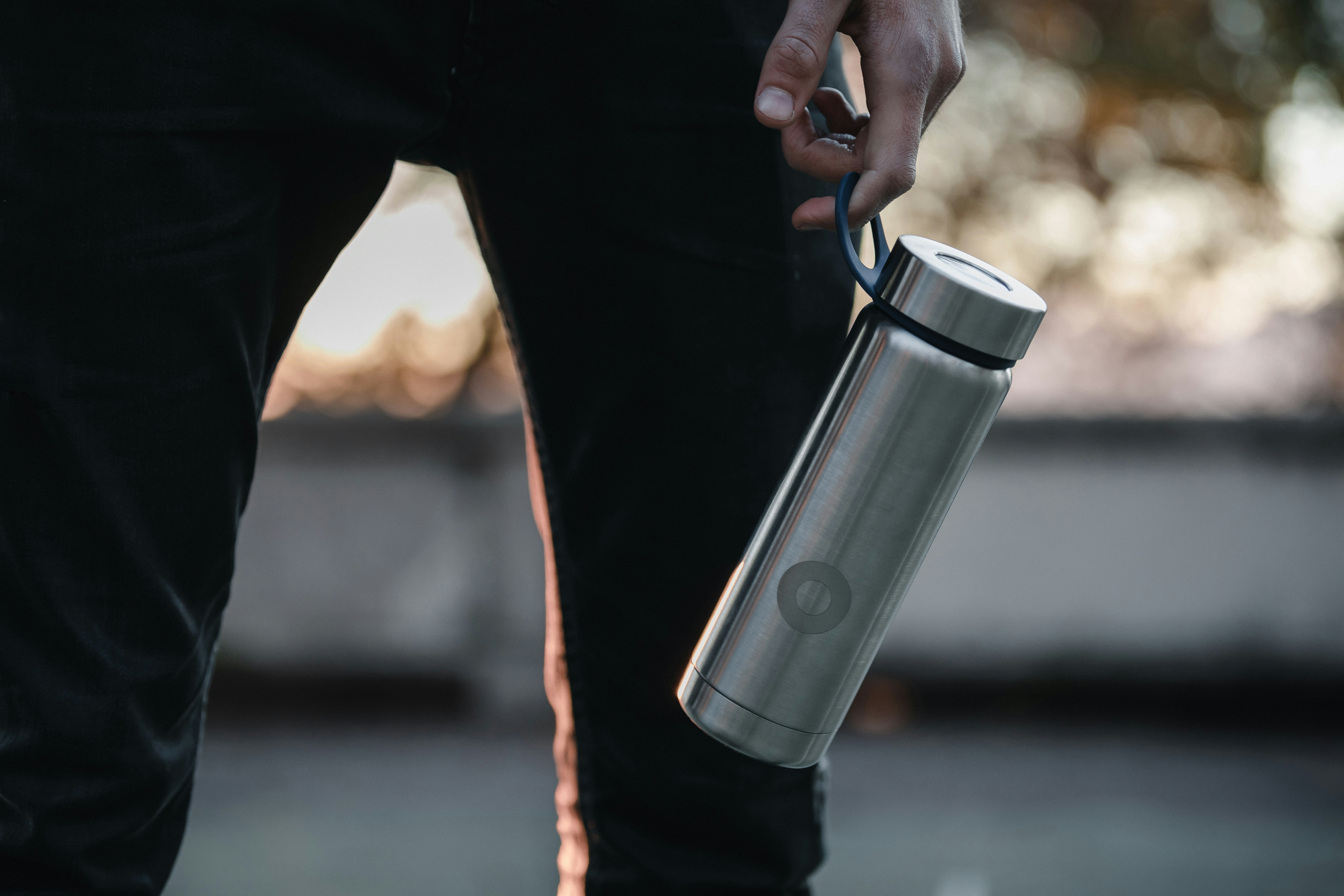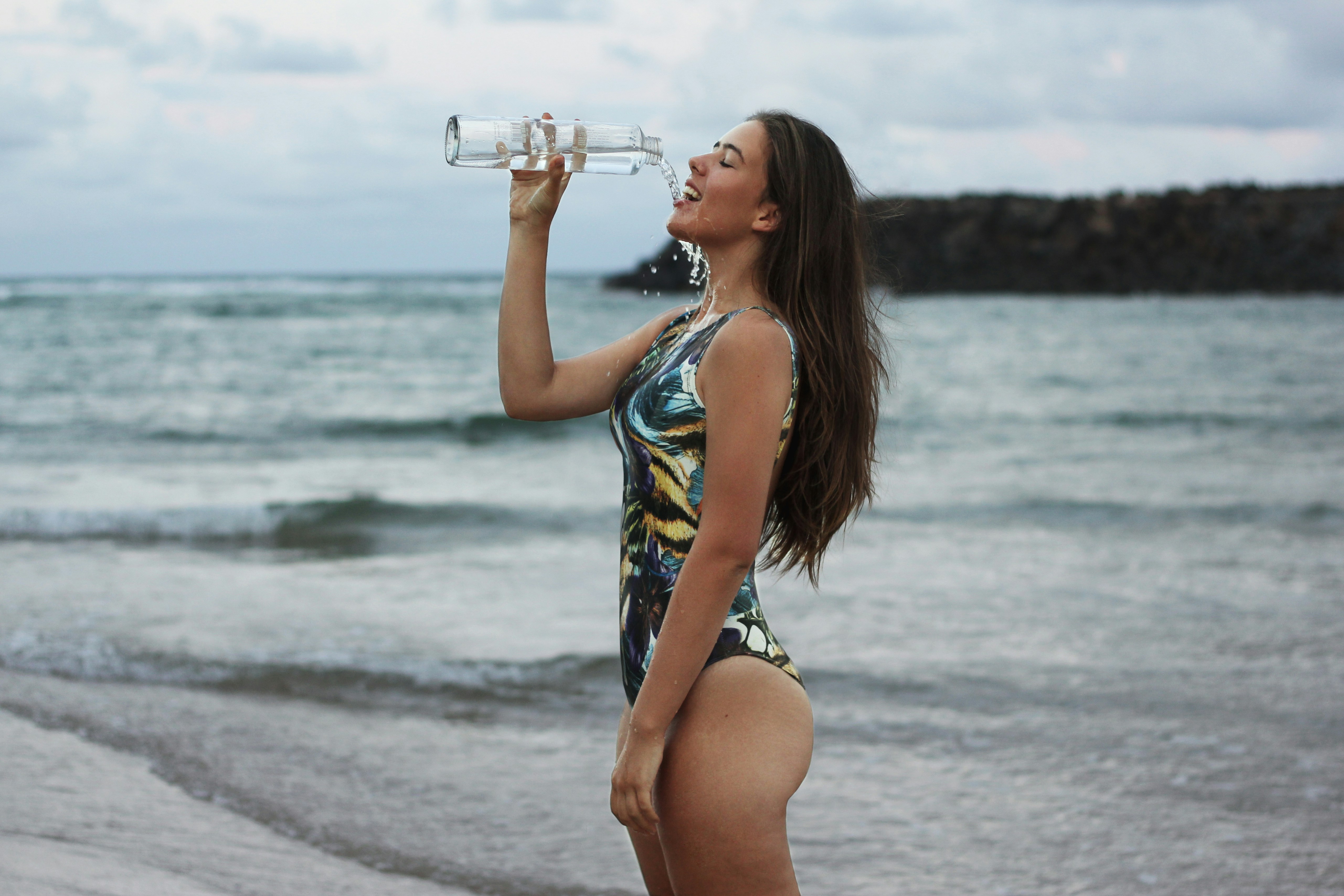Discover how much water you should drink per day to stay hydrated and support your body’s vital functions. Get science-backed guidelines and make informed decisions about your water intake for a healthy and balanced lifestyle.
Water is essential for our overall health and well-being. However, knowing exactly how much water to drink each day can be quite a perplexing question. With all the conflicting information out there, it can be challenging to discern the correct amount. In this article, you will uncover the science-backed guidelines on how much water you should be consuming daily to ensure optimal hydration and support your body’s vital functions. Understanding this crucial information will empower you to make informed decisions regarding your water intake and help you maintain a healthy and balanced lifestyle.

Factors that Influence Water Needs
Age
The amount of water you need to drink each day is influenced by several factors. One important factor is your age. As we age, our bodies become less efficient at conserving water, making it even more crucial to stay hydrated. Older adults may also have reduced thirst sensations, which can make it easy to overlook the need for water. Therefore, it is recommended that older adults pay extra attention to their water intake and make sure to drink enough fluids throughout the day.
Gender
Another factor that influences your water needs is your gender. Men generally have higher water requirements than women. This is mainly because men tend to have more muscle mass, which contains more water than fat. Additionally, women go through menstruation and pregnancy, which can increase their water needs during these periods. It is important for women to listen to their bodies and pay attention to their hydration levels, particularly during times of hormonal changes.
Physical Activity Level
Engaging in physical activity increases your body’s need for water. When you exercise, you lose water through sweat and respiration, and it is essential to replace the lost fluids to avoid dehydration. The duration and intensity of your workouts also play a role in determining your hydration needs. Generally, the more vigorous your exercise routine is, the more water you should drink. Athletes or individuals engaged in intense physical activities should closely monitor their water intake and ensure they adequately hydrate before, during, and after exercise.
Climate
The climate in which you live or spend most of your time also affects your water needs. In hot and humid environments, your body loses water quickly through sweat to help regulate body temperature. This can lead to increased fluid requirements and a higher risk of dehydration. Conversely, in cold or dry climates, you may not feel as thirsty, but it’s still important to drink enough water to prevent dehydration. It’s crucial to adapt your water intake based on the climate conditions and to be mindful of any signs of dehydration.
Medical Conditions
Certain medical conditions can impact how much water you should drink in a day. For example, individuals with kidney disease may need to limit their water intake to reduce strain on the kidneys. Conversely, conditions such as diabetes or diarrhea can lead to increased fluid loss and require a higher water intake. If you have any medical conditions, it is important to consult with your healthcare provider to determine the appropriate amount of water you should be drinking daily.
General Recommendations
Eight Cups a Day Rule
You may have heard the common recommendation to drink eight cups (64 ounces) of water per day. While this recommendation is widespread, it does not take into account individual variations and specific circumstances. However, it can serve as a general guideline for those who have not calculated their daily water needs. Keep in mind that this guideline includes water from all sources, including beverages and foods.
National Academies of Sciences, Engineering, and Medicine Recommendation
The National Academies of Sciences, Engineering, and Medicine (formerly known as the Institute of Medicine) has provided more specific recommendations for water intake. For women, the recommendation is about 2.7 liters (91 ounces) of total water per day, including fluids from all sources. For men, the recommendation increases to about 3.7 liters (125 ounces) of total water per day. These recommendations take into account various factors such as age, activity level, and climate.
Calculating Water Intake
Body Weight Method
One way to estimate your daily water needs is by using the body weight method. This method suggests drinking an ounce of water for every pound of body weight. For example, if you weigh 150 pounds, you would aim to drink 150 ounces (about 4.4 liters) of water per day. Keep in mind that this method is a general estimate and may not be suitable for everyone. It is important to consider other factors such as age, activity level, and climate when determining your individual water needs.
Urine Color Method
Another method to assess your hydration level is the urine color method. By examining the color of your urine, you can get an idea of whether you are adequately hydrated or need to increase your fluid intake. Pale yellow urine is a sign of proper hydration, while dark yellow or amber-colored urine indicates dehydration. If your urine color is consistently dark, it may be an indication that you need to drink more water. However, it is important to note that certain medications, foods, and supplements can affect urine color, so it should not be the sole determinant of your hydration status.
Thirst Indicator Method
Listening to your body’s thirst signals is an instinctive way to determine your need for water. However, relying solely on thirst may not always be sufficient, particularly during intense physical activity or in older adults who may have diminished thirst sensations. Additionally, thirst is not always an early indicator of dehydration. By the time you feel thirsty, your body may already be mildly dehydrated. Therefore, it is important to drink water regularly, even if you do not feel thirsty.
Special Cases
Pregnancy and Breastfeeding
During pregnancy and breastfeeding, a woman’s body goes through significant changes, leading to increased water needs. The American College of Obstetricians and Gynecologists recommends that pregnant women aim for about 3 liters (approximately 101 ounces) of fluids per day, including water, to support adequate hydration and fetal development. For breastfeeding women, it is important to increase fluid intake even further to meet the demands of milk production. Breastfeeding women should aim for about 3.8 liters (128 ounces) of fluids per day.
Athletic Performance
Athletes and individuals involved in intense physical activity have higher water needs to compensate for the fluid loss through sweat and respiration. Dehydration can significantly impact athletic performance, leading to decreased endurance, impaired recovery, and increased risk of heat-related illnesses. It is crucial for athletes to develop a personalized hydration plan in consultation with a sports nutritionist or healthcare professional. This plan should consider the intensity and duration of training, as well as environmental factors.
Illness and Fever
During illness, especially if accompanied by fever, your body may lose more fluids than usual. This is due to increased sweating, higher respiratory rate, and potential vomiting or diarrhea. It is essential to increase your fluid intake during illness to prevent dehydration and support the body’s healing process. Drinking water, electrolyte-rich beverages, and clear soups can help replenish lost fluids. If you are unsure about how much water to drink during illness, consult with your healthcare provider for personalized recommendations.
Hot and Humid Environments
In hot and humid environments, your body loses water through sweat at a faster rate to cool down and maintain a stable body temperature. It is crucial to increase your fluid intake in these conditions to prevent dehydration and heat-related illnesses such as heat exhaustion or heat stroke. In addition to drinking water, incorporating electrolyte-rich beverages or foods can help replenish lost minerals and maintain proper hydration in such environments.
High Altitudes
At high altitudes, such as in mountainous regions or during air travel, your body may experience increased fluid loss due to higher respiration rates and potential increased urine production. As a result, your water needs may be higher than usual, and it is important to drink enough fluids to stay properly hydrated. It is recommended to increase your fluid intake by about 1.5 to 2.5 liters (51 to 85 ounces) per day when at high altitudes to compensate for the increased fluid loss.

Signs of Proper Hydration
Pale Yellow Urine Color
One of the easiest ways to assess your hydration status is by examining the color of your urine. Pale yellow urine usually indicates proper hydration, while dark yellow or amber-colored urine can be a sign of dehydration. However, keep in mind that certain medications, foods, and supplements can affect urine color. Therefore, it is important to consider other factors such as urine frequency and overall well-being when assessing your hydration status.
Satisfactory Frequency of Urination
Another indicator of proper hydration is the frequency of urination. A healthy person should urinate approximately 4 to 8 times per day. If you are adequately hydrated, you should have a regular and satisfactory frequency of urination. Decreased frequency or small amounts of urine could be a sign of dehydration and may indicate the need to drink more fluids.
Moist Skin and Lips
Properly hydrated individuals often have moist and supple skin. When you are dehydrated, your skin may feel dry or rough to the touch. Likewise, hydrated lips are plump and supple, while dehydrated lips may appear dry, cracked, or chapped. Pay attention to the condition of your skin and lips as they can be a reliable indicator of your hydration status.
Normal Cognitive Function
Maintaining proper hydration is not only essential for physical health but also for mental performance. Studies have shown that even mild dehydration can negatively affect cognitive function, including attention, memory, and mood. If you are properly hydrated, you should not experience difficulties in concentration or cognitive tasks. If you notice a decline in your cognitive function, it may be a sign of dehydration, and drinking water could help alleviate these symptoms.
Consequences of Dehydration
Decreased Physical Performance
Dehydration can have a detrimental effect on physical performance. Studies have shown that a fluid loss of only 1-2% of body weight can lead to decreased endurance, reduced strength, and impaired athletic performance. It is important to stay properly hydrated, especially during exercise or physical activities, to maintain optimal performance and avoid muscle fatigue.
Impaired Cognitive Function
As mentioned earlier, dehydration can impair cognitive function. Even mild dehydration has been shown to negatively affect attention, memory, and mood. When you are dehydrated, your brain may experience difficulty in processing information, making decisions, and maintaining focus. Staying properly hydrated can support optimal cognitive function and help you stay mentally sharp.
Increased Risk of Kidney Stones
Dehydration can increase the risk of developing kidney stones. When the body lacks adequate water, the urine becomes concentrated, leading to an increased likelihood of minerals and salts forming crystals in the kidneys. These crystals can accumulate and ultimately form kidney stones. By maintaining proper hydration, you can help reduce the risk of kidney stone formation and support optimal kidney health.
Constipation
Inadequate water intake can lead to constipation or worsen existing constipation. Water helps soften the stool and improve bowel function. When you do not drink enough water, your body may extract more water from the colon, leading to dry and hard stools. Staying hydrated by drinking an adequate amount of water can help prevent or alleviate constipation and support regular bowel movements.
Urinary Tract Infections
Insufficient water intake can increase the risk of urinary tract infections (UTIs). Drinking an adequate amount of water helps flush out bacteria and other harmful substances from the urinary tract, reducing the risk of infection. When you are dehydrated, your urine becomes more concentrated, which can promote bacterial growth and increase the likelihood of UTIs. By staying properly hydrated, you can help maintain a healthy urinary tract and reduce the risk of infections.

Water Sources and Hydration Tips
Beverages
Drinking water is the simplest and most effective way to meet your hydration needs. It is calorie-free, easily accessible, and usually helps quench your thirst. However, there are several other beverages that can contribute to your overall fluid intake. These include herbal teas, flavored water, unsweetened fruit juices, and milk. It is important to choose beverages that are low in added sugars, as excessive sugar intake can negatively impact overall health.
Food
In addition to beverages, you can also obtain a significant amount of water from the foods you eat. Fruits and vegetables, in particular, have high water content and can contribute to your overall hydration. Watermelon, cucumbers, lettuce, and strawberries are examples of foods with high water content. Including a variety of such foods in your diet can help supplement your fluid intake and keep you adequately hydrated throughout the day.
Slower Hydration Strategies
If you have difficulty drinking large amounts of water all at once, you can adopt slower hydration strategies. Sip water throughout the day rather than chugging large quantities at once. You can also set reminders to drink water at regular intervals, ensuring that you maintain a steady intake throughout the day. Using a reusable water bottle can be helpful in tracking your water intake and making it more convenient to drink water wherever you go.
Flavored Water Options
If plain water is not appealing to you, there are various flavored water options available in the market. These can be a good alternative to satisfy your taste preferences while staying hydrated. However, be mindful of flavored waters that contain added sugars or artificial sweeteners, as these can have negative effects on your health. Look for options that are naturally flavored or consider infusing your water with fruits, herbs, or citrus slices for a refreshing taste.
Misconceptions about Water Intake
Eight Cups of Water Per Day
The notion that you should drink eight cups of water per day is a common misconception. As mentioned earlier, the amount of water you need varies depending on factors such as age, gender, physical activity level, and climate. While the eight cups guideline can be a starting point for some individuals, it is essential to consider individual needs and adjust water intake accordingly.
Only Drinking When Thirsty
Relying solely on thirst to guide your water intake can be risky. Thirst is not always an accurate indicator of hydration status, as it may not kick in until you are already mildly dehydrated. Additionally, certain circumstances such as intense physical activity or older age can diminish the perception of thirst. Therefore, it is important to drink water regularly, even if you do not feel thirsty, to avoid dehydration.
Adjusting Water Intake
Individual Needs
It is crucial to remember that individual water needs can vary greatly. The recommendations provided are general guidelines, but each person’s requirements may differ based on their unique circumstances and health conditions. If you have specific concerns or are unsure about your water needs, it is advisable to consult with a healthcare provider or registered dietitian who can provide personalized recommendations.
Environmental Changes
When your environment changes, such as during travel to different climates or altitudes, it is important to adjust your water intake accordingly. Your body may require more fluids in hot or high-altitude environments to compensate for increased fluid loss. Similarly, in cold or dry climates, it is important to ensure you are drinking enough water, even if you do not feel as thirsty.
Illness or Injury
During illness or injury, your body may have increased fluid requirements to support the healing process. Fever, vomiting, or diarrhea can lead to significant fluid loss and dehydration. It is important to increase your fluid intake during these times and replenish lost fluids as advised by your healthcare provider. If you are unsure about how much water to drink during illness or injury, seek professional medical guidance for appropriate hydration strategies.
Conclusion
Proper hydration is essential for maintaining overall health and well-being. Factors such as age, gender, physical activity level, climate, and medical conditions all influence your water needs. While general recommendations and methods for calculating water intake exist, it is important to be mindful of your individual needs and adjust your water intake accordingly. Signs of proper hydration include pale yellow urine color, satisfactory frequency of urination, moist skin and lips, and normal cognitive function. Dehydration can lead to decreased physical performance, impaired cognitive function, increased risk of kidney stones, constipation, and urinary tract infections. Drinking water, as well as obtaining fluids from food sources, can contribute to meeting your hydration needs. Additionally, being aware of misconceptions about water intake and adjusting your water intake based on individual needs, environmental changes, and illness or injury, can help ensure proper hydration. Stay mindful of your body’s signals and make hydration a priority to support optimal health and well-being.


